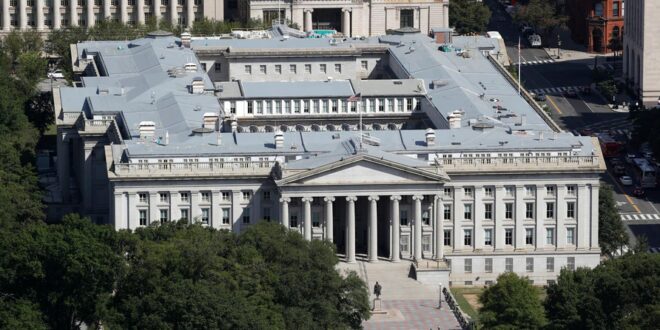The United States is taking new steps to make it more difficult for the Islamic State terror group to move money, including donations from international supporters, through Syria and Turkey.
The U.S. Treasury Department announced sanctions on Monday against three people and one company, all of which played key roles in what officials described as the terror group’s illicit financial network.
One of the sanctioned individuals, Alaa Khanfurah, is accused of using his Turkish-based money services company to transfer thousands of dollars to IS operatives across Syria. Treasury officials also said that in 2017 and again in 2019, Khanfurah facilitated money transfers between top IS leaders.
The new sanctions also target the Al-Fay Company, a money services business based in Turkey, and two brothers, Idris al-Fay and Ibrahim al-Fay.
The U.S. Treasury Department said Idris al-Fay had used the company to funnel donations to IS members, including to operatives working out of the al-Hol displaced persons camp in northeast Syria. According to its statement, he is currently in Iraqi custody.
Al-Fay’s brother Ibrahim is accused of taking over management of the company and of continuing to send funds to what Treasury officials described as an IS element in Syria and Iraq.
“This administration is committed to preventing the resurgence of ISIS and countering the group’s terrorist financing networks wherever they operate,” Andrea Gacki, director of the department’s Office of Foreign Assets Control, said in a statement, using an acronym for the terror group. “These designations highlight the continued importance of all jurisdictions bolstering their efforts to combat the financing of terrorism.”
Monday’s announcement of sanctions coincides with the latest meeting of the Global Coalition to Defeat ISIS finance group, which has been helping to coordinate efforts to stem the terror organization’s cash flow.
Despite the defeat of IS’ self-declared caliphate more than two years ago, U.S. officials estimate the group still has tens of millions of dollars in cash reserves. Earlier this year, Treasury officials estimated the figure could be as high as $100 million, though earlier estimates warned it could be much higher.
#ISIS finances - @USTreasury estimates terror group has as much as $100 million in cash reserves
Previous intelligence estimates put that number at $50 million to $300 million
— Jeff Seldin (@jseldin) February 9, 2021“ISIS remains active and maintains connections to the financial system,” U.S Secretary of State Antony Blinken said in a statement Monday.
“In countries throughout the Middle East, ISIS has relied on key money services business operators, like those designated today, that allow ISIS to obfuscate its transactions,” he added. “The Global Coalition to Defeat ISIS will continue to target ISIS’ illicit financial activities to include its disbursement of millions of dollars in cash reserves across the region.”
Earlier this year, U.S. officials voiced concern that IS was turning the al-Hol displaced persons camp in Syria into a key node for financial transactions, noting that security forces at the camp had “struggled to address ISIS recruitment and fundraising.”
In April, the U.S.-backed Syrian Democratic Forces launched a multiweek operation to root out IS activity in the camp, arresting more than 150 suspected IS operatives, including several described as “senior leaders.”
Follow-on operations related to the nearly week-long crackdown vs #ISIS at #alHol have resulted in the arrests of another 31 suspected #ISIS members since April 2, per #SDF, #Asayish https://t.co/Docvo46Pp0
— Jeff Seldin (@jseldin) April 10, 2021The U.S. Treasury Department warned Monday that despite the crackdown in al-Hol and other campaigns to limit IS’ cash flow, the terror group is still managing to generate revenue through extortion, looting and kidnapping for ransom.
 Eurasia Press & News
Eurasia Press & News




